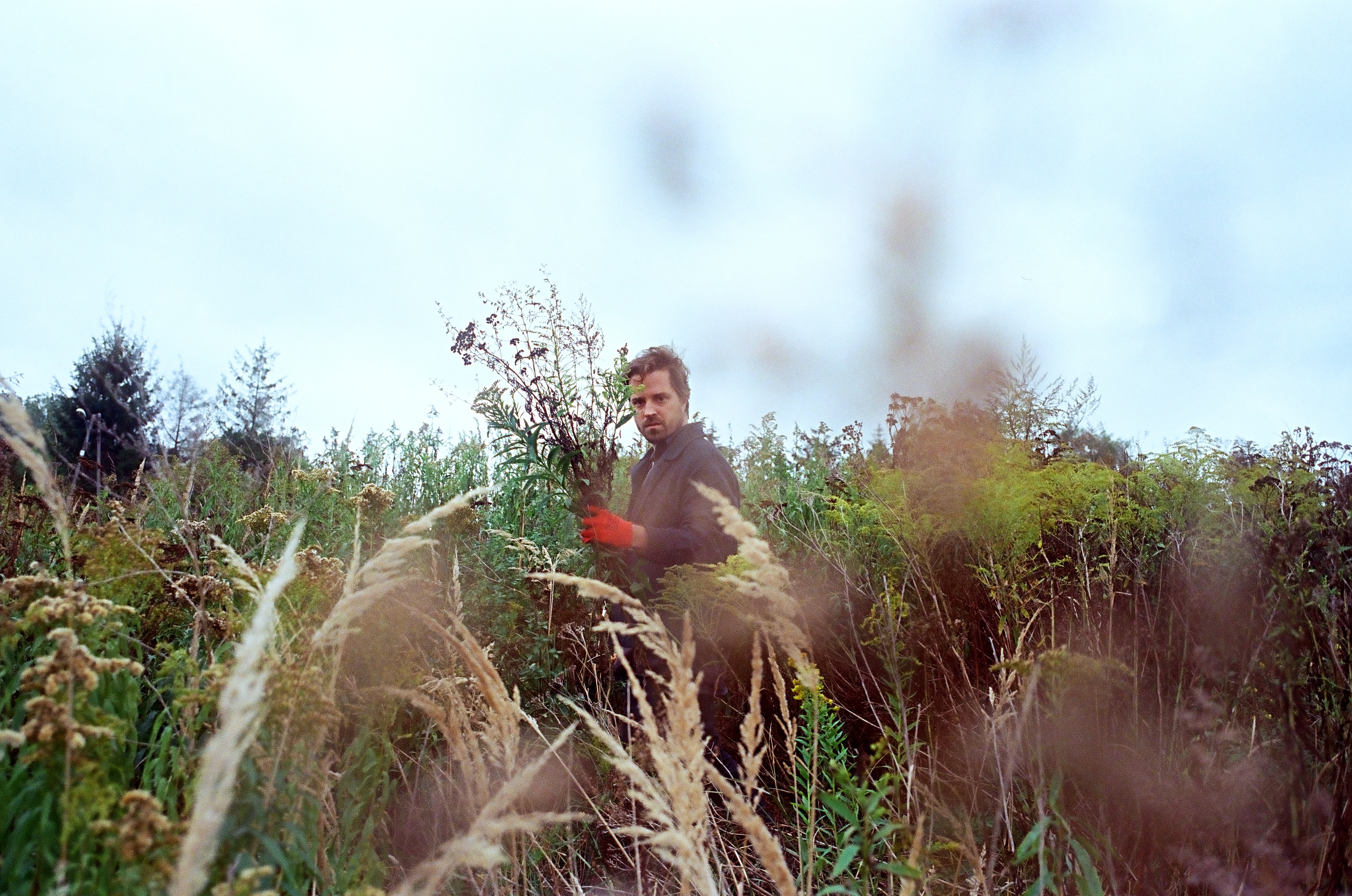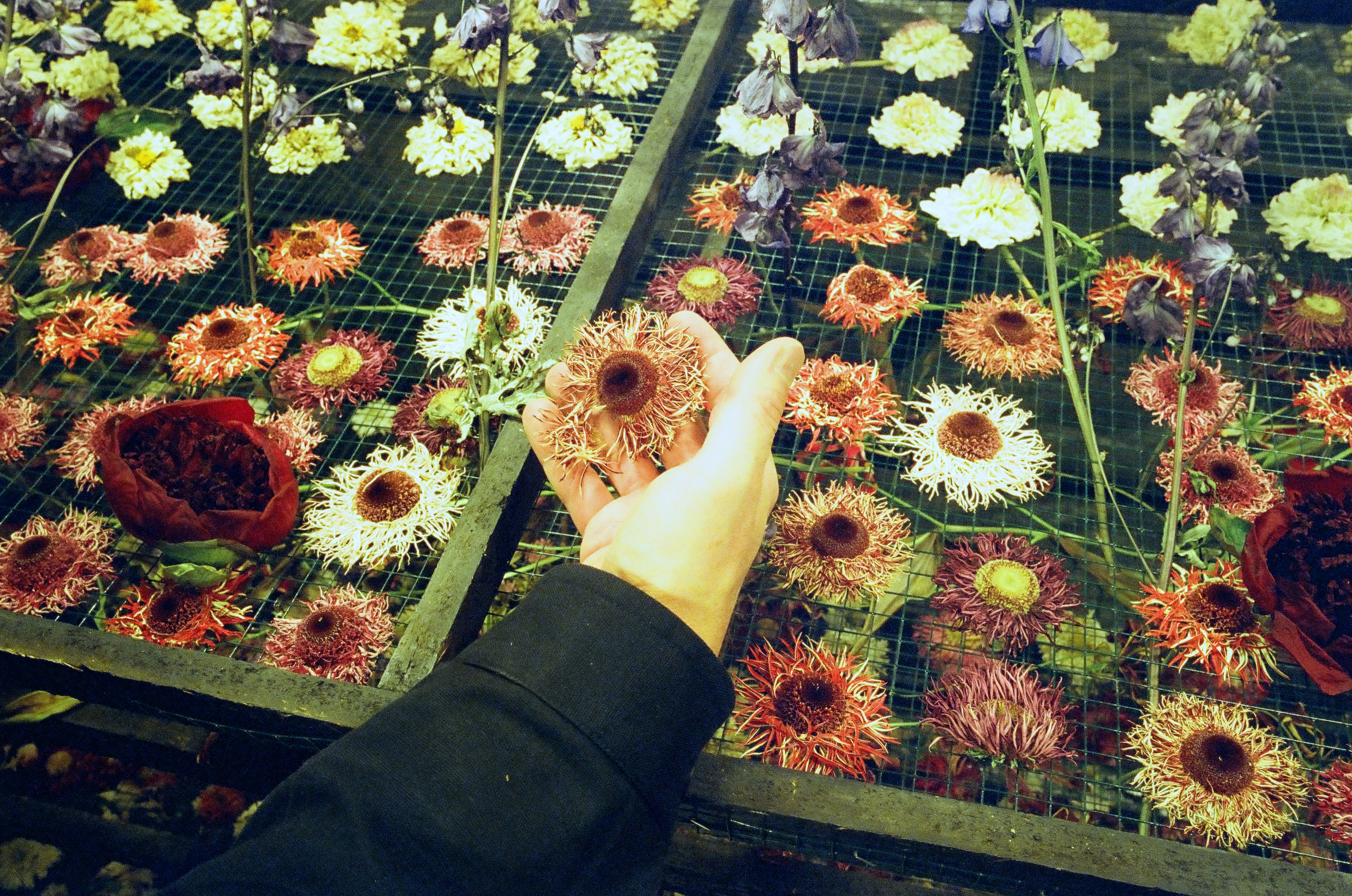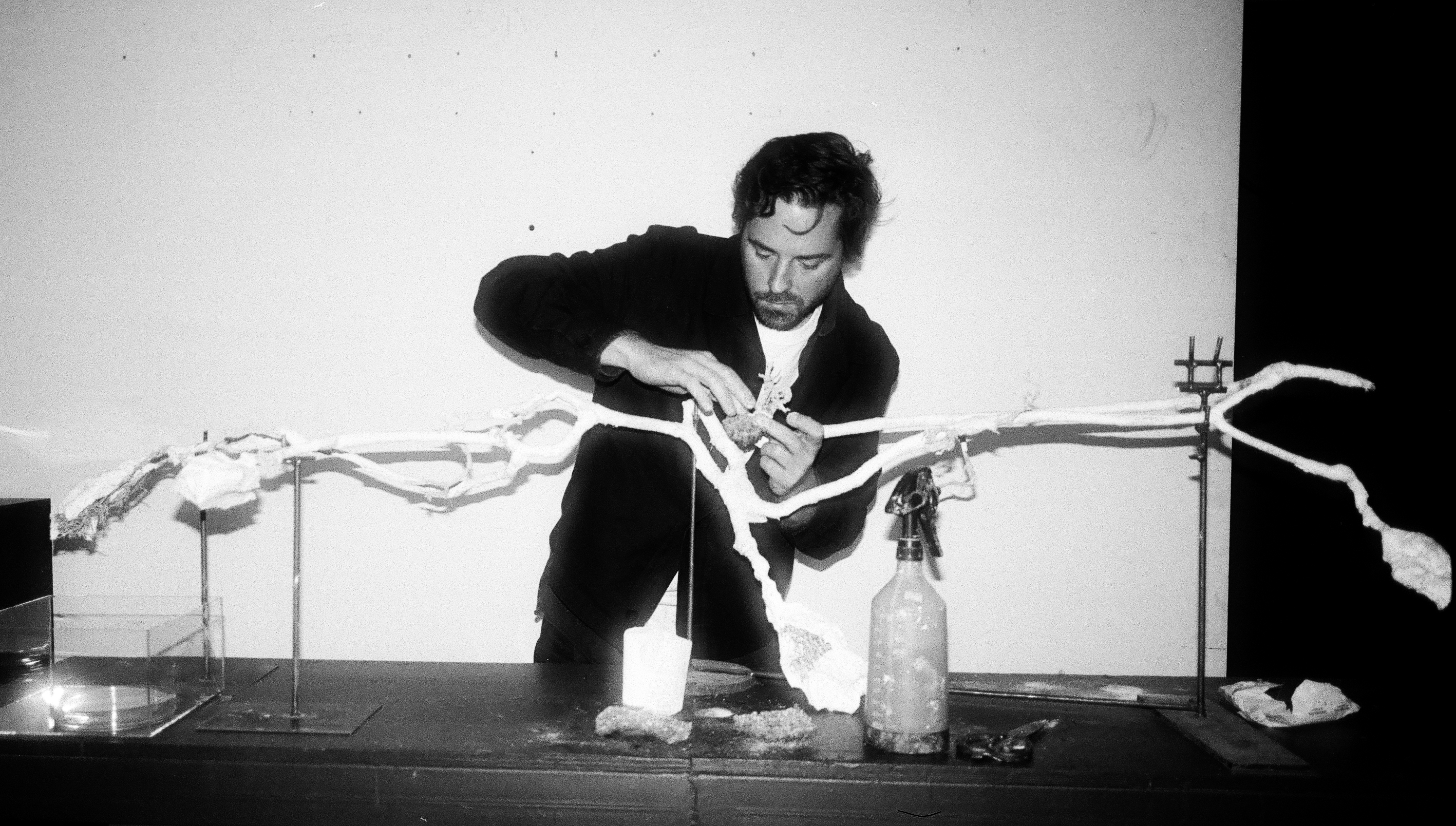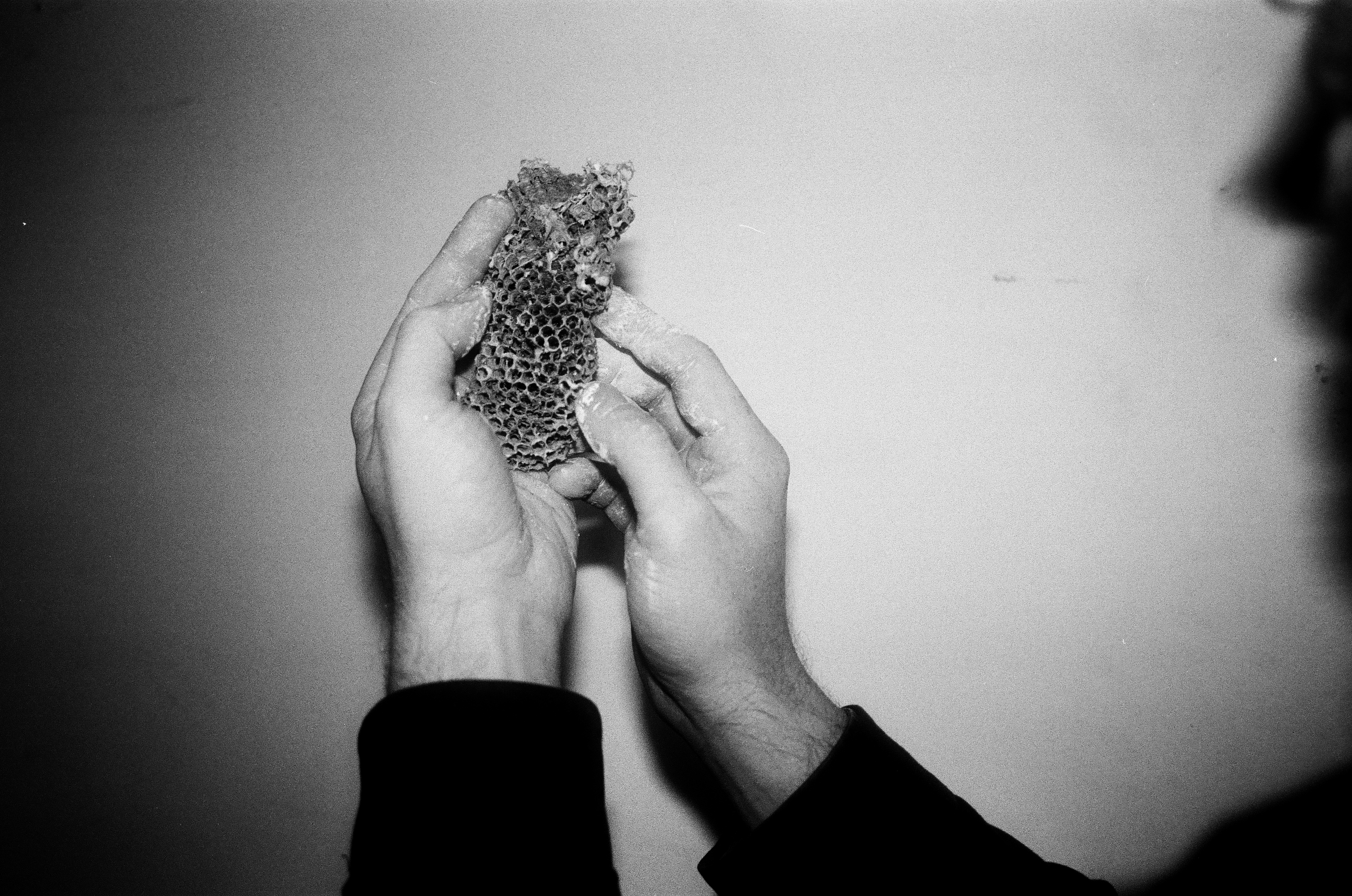Work in Process, episode three: in the studio with botanical designer-artist Marcin Rusak
In this video series, Wallpaper* discovers the processes by which creative visionaries bring their work to life. Here, we head to the outskirts of Warsaw, where Rusak turns plant matter into stunning designs
Sebastian Jordahn
Receive our daily digest of inspiration, escapism and design stories from around the world direct to your inbox.
You are now subscribed
Your newsletter sign-up was successful
Want to add more newsletters?

Daily (Mon-Sun)
Daily Digest
Sign up for global news and reviews, a Wallpaper* take on architecture, design, art & culture, fashion & beauty, travel, tech, watches & jewellery and more.

Monthly, coming soon
The Rundown
A design-minded take on the world of style from Wallpaper* fashion features editor Jack Moss, from global runway shows to insider news and emerging trends.

Monthly, coming soon
The Design File
A closer look at the people and places shaping design, from inspiring interiors to exceptional products, in an expert edit by Wallpaper* global design director Hugo Macdonald.
Welcome to Wallpaper’s video series, ‘Work in Process’, where we delve into the creative methodology of today’s most inspiring artists and creators. For this episode, we discover what is involved in Marcin Rusak’s practise of creating mesmerising furniture, objects and sculptures from plants and flowers.
When designer and artist Marcin Rusak was young, his grandfather, a botanist, taught him about the wonders of the natural world – and its inevitable cycles of decline. His flower business closed before Rusak was born, and the designer’s earliest memories are filled with abandoned, overgrown greenhouses.
This fascination with nature and decay stayed with him; while studying at the Royal College of Art, he became preoccupied with the amount of waste at London’s flower markets, collecting it for his work. This led to some of Rusak’s earliest conceptual pieces, including a recreation of a 16th-century wooden cabinet made entirely from organic materials.

Marcin Rusak in a still from our film
Today, his work continues to reflect life and death in nature. ‘My practice was always on this axis of decay and preservation. What I am trying to express is the passage of time and the fact that we as humans are always fighting this,’ says the designer.
‘I create objects and installations that are either meant to last or decompose and disappear’
Marcin Rusak
Rusak creates furniture, objects and sculptural installations from natural materials, often preserved in resin – transforming ephemeral forms into tactile entities. His practice has even led to collaborations with museums, discussing the philosophy and practicalities of conserving decomposing works.
‘It usually starts with research around the concept I'm interested in, and then the fruits of this research become experiments,’ says the designer. ‘Everything is centred around botany and on the scale of either decay or preservation. So I create objects, installations and works that are either meant to last or decompose and disappear.’

A still from our film
Rusak collects discarded flower and plant matter either from the growers or supermarket before bringing it to his studio on the outskirts of Warsaw to be ‘processed’. These organic elements are often embedded in clear or coloured resin and combined with metals, glass and wood, and shaped and layered into cabinets, vases, lamps and so forth. ‘“Alchemy” is a word I use quite a lot to describe my practice, because it’s a combination of elements and something that happens in between them – some sort of secret interaction,’ he says.
Receive our daily digest of inspiration, escapism and design stories from around the world direct to your inbox.
Rusak’s studio houses a ‘flower library’ for botanical processing, alongside dedicated wood, resin and metal studios. His team, which comprises botanical experts, 3D engineers and project managers, employs a range of techniques from resin casting to thermal coating.

Rusak in his studio, film still

Rusak in his studio, film still
‘A lot of the processes happen after I’ve finished the work,’ adds Rusak. Many of the objects he creates are designed to change or degrade over time: ‘One chapter is very intentional, where I create the work, and the other chapter is more about the environment influencing the work. The sun can melt a piece, the fungi can grow over the surface, the acidity of the rain can decompose certain elements. It would be a very beautiful thing if, after a period of time, it completely disappeared and you’re left with a blank canvas.’
The designer also, therefore, maintains a ‘natural incubator’, a 17th-century villa 40 minutes from his studio, which serves as an exhibition and documentation site, allowing him to observe how the natural world interacts with his pieces in an uncontrolled environment.
By turning decay into design and ephemerality into endurance, Rusak reminds us that creation and deterioration are not opposites, but parts of the same continuous cycle.

Rusak’s studio, film still
Featuring: Marcin Rusak
Director: Andiamo
Director of Photography: Marcin Gołąb
Editor: Mikołaj Denysiuk
Colourist: Kasia Żebrowska at Vein
Sound design: Mikołaj Denysiuk
Production: Andiamo Digital
Local producer: Karola Kowalczyk at The Reel Friends
Production manager: Michał Więckowski
Music supervisor: Chris Sulenta at Massive Music
Music in order of appearance: Something Within by Arun Sethi
C divided by G by Daniel Barbiero
A Grey Day by Guto Lucena
The Search by Anna Dager and Hanna Ekstorm
Light by Ana Bogner
Wallpaper* Head of Video: Sebastian Jordahn
With thanks to Marcin Rusak Studio.
Anna Solomon is Wallpaper’s digital staff writer, working across all of Wallpaper.com’s core pillars. She has a special interest in interiors and curates the weekly spotlight series, The Inside Story. Before joining the team at the start of 2025, she was senior editor at Luxury London Magazine and Luxurylondon.co.uk, where she covered all things lifestyle.